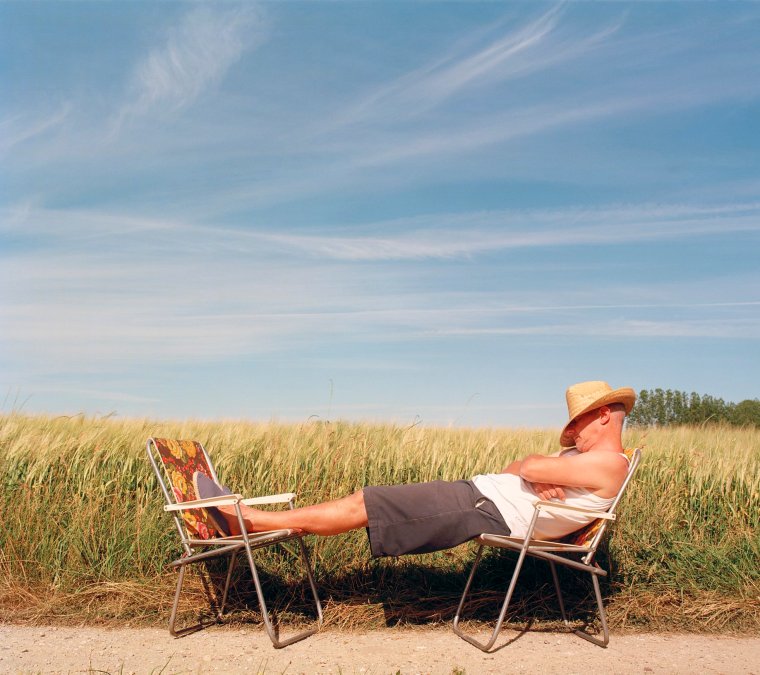Whether you’re lazing on a sun lounger or trekking across fields and mountains, a summer break is something many of us look forward to each year. According to to the Government, most UK employees are entitled to 5.6 weeks of annual leave every year – and we want to make every second count.
The idyllic summer holiday of your dreams doesn’t always match up to reality, however, with poor sleep during or leading up to your big break contributing to exhaustion and frayed tempers at a time when you should be feeling your best. Whether it’s the stress of packing for a family of four, jetlag, anxiety around flying, or struggles with sleep on public transport, getting to grips with your sleep routine can help make your time away significantly smoother.
We spoke to Lisa Artis, sleep expert at The Sleep Charity, for her tips on the best ways to hack your body clock while enjoying your holiday this summer.
Early departures
“If you have an early flight, it’s very common to struggle to get to sleep the night before – especially with all the excitement,” says Artis. “In the few days before you travel, it’s worth slightly readjusting your sleep schedule so it doesn’t come as such a shock to your system on the day of travel.
“The night before, try to keep to your regular sleep routine – whether that’s no phones, stretching, herbal tea, a bath, and so on – to help you drift off better. Forcing yourself to sleep seldom has any benefit, so if you do struggle to get to sleep, be kind to yourself and try to find a few hours on the plane for some shut-eye to catch up.”
Refuel and stay hydrated
“Diet can have a huge impact on your body clock. Ensure you have three full meals, packed with protein and veggies, around the period of travel. Nutritious, filling meals will help you feel more alert. Adjusting the time of your meal slightly to the time zone of your destination in the days ahead may help to adjust your body clock. Planes are also incredibly dry, so make sure to keep well-hydrated before, during and after your flight.”
In-flight essentials
“Block out your surroundings with an eye mask and earplugs. If you’re not used to sleeping with these items, perhaps try to wear them in the few nights before your flight so you get used to them. On the flip side, when it’s ‘daytime’, keep your eye mask off and let your eyes take in the light to help keep yourself awake. An eye mask may also come in handy if your hotel room doesn’t have black-out curtains. Take layers in your hand luggage to ensure you stay cosy throughout the flight. And before getting some shut-eye, swap sugary drinks, alcohol and coffee for herbal tea or water.”

Unplug
“Light can have a massive impact on how your body clock adjusts to a new time zone. Make the most of the daylight you have access to by resetting your watch to your destination time and staying awake for your new ‘daytime’. In terms of blue light, it can be difficult to avoid screens when on a plane (especially when watching films), so consider taking a break to read a book, play a game, or take a walk down the aisle to kill time.”
On arrival
“No one wants to worry about sleep while they’re trying to enjoy a well-earned break. There are, however, some very small additions to your summer sun routine that could help you make the most of your relaxation time. An early morning walk can gently awaken your body clock and make the most of the morning sun. Spending lots of time outdoors is also a great way to exert energy, but be sure to factor in some downtime before bed to help you get ready to sleep. You may need a few days to adjust to your new bed, so perhaps avoid planning high-intensity activities for the first few days.”

Home comforts
“Adjusting to a new sleeping environment can sometimes have the opposite effect of the luxurious sleep you see on hotel adverts. If you’re finding your new bed uncomfortable, don’t be afraid to ask for an extra pillow or a different room – you paid good money to sleep well! If there are any items you can pack that will help you feel more at home, such as a pillow, eye mask or sleep spray, be sure to take them with you. Try to do your usual pre-sleep routine as well. If your room has air-con, set it to 16-18 degrees, as that is the ideal sleeping temperature.”
High temperatures
“If you’re heading to a hot destination, the new climate may leave you tossing and turning for all the wrong reasons while you’re on your jollies. If you’re struggling to sleep and staring at the ceiling, take yourself out of bed and into another room, if possible. Some light stretches can help and the movement will help cool you down. Having a cool (not cold) shower before bed is a great way to lower your body temperature, and packing lightweight, cotton pyjamas will ensure heat doesn’t get trapped. Ensure your room is well-ventilated with aircon or a fan, if possible.”



Maurice Saatchi: I used to adore capitalism – then I had lunch with Margaret Thatcher